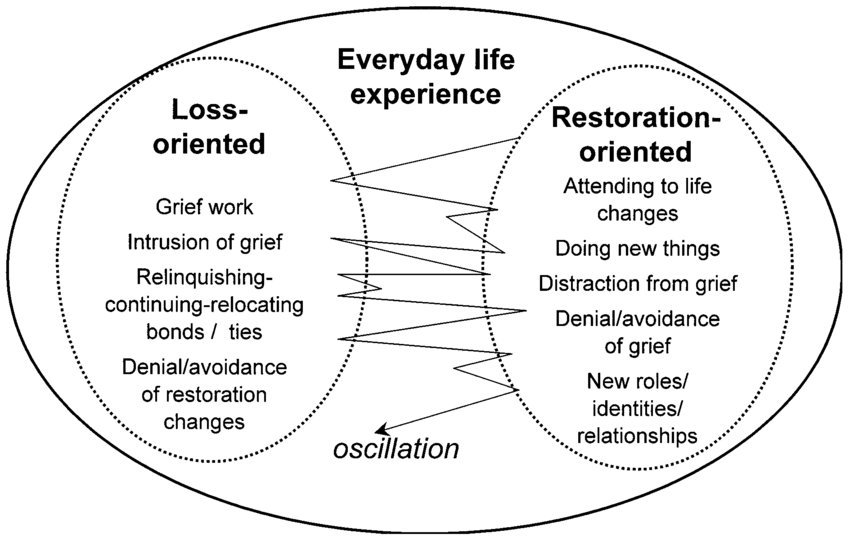A Fine Balance
Grief is not a static experience. Nor is it a linear process, where we master one aspect and simply move on to the next. It is messy. Unpredictable. And to say it is hard is an understatement.
All too often people tell me that they are not grieving "right." Or that they started off grieving all wrong. But as long as you are not harming yourself or others, you are probably doing exactly what you need to do.
Grief is natural. Humans have coped with loss and learned how to live meaningfully for thousands of years. I don't say this to minimize the experience – but to normalize it and to let you know that you have inside of you exactly what you need to survive. Of course it helps to have a little guidance and a group of humans who care, which is what we do here in Awaken.

It is normal for us to spend some amount of time engaging in "loss oriented" activities. And it is equally normal for us to take some time away from the pain and engage in "restoration activities."
We Go Back And Forth Between Grieving & Living
The Dual Process Model of Coping with Bereavement, a theory proposed by grief researchers Margaret Stoebe and Henk Schut, suggests that avoidance, denial, and suppression of grief at times is not only normal but healthy.
Their theory suggests that when we are grieving it is natural to oscillate back and forth between coping with loss-oriented stressors and restoration-oriented activities, as shown in the graphic above.
You do not need to force yourself to focus on your experience of grief all of the time. Just as you do not need to suppress your emotions all of the time either. Balance is the key.
Be Kind To Yourself No Matter How You Are Feeling
So when you catch yourself not grieving, know that it is OK. It doesn't mean you don’t care about your loved one – of course you do – or that you are engaging in unhealthy or harmful behavior.
And when a wave of grief crashes into you, it doesn’t mean that you are regressing or backtracking or “not doing so well.”
Both of these states are completely normal and help you integrate the reality of your loss with the reality of your life that continues on.